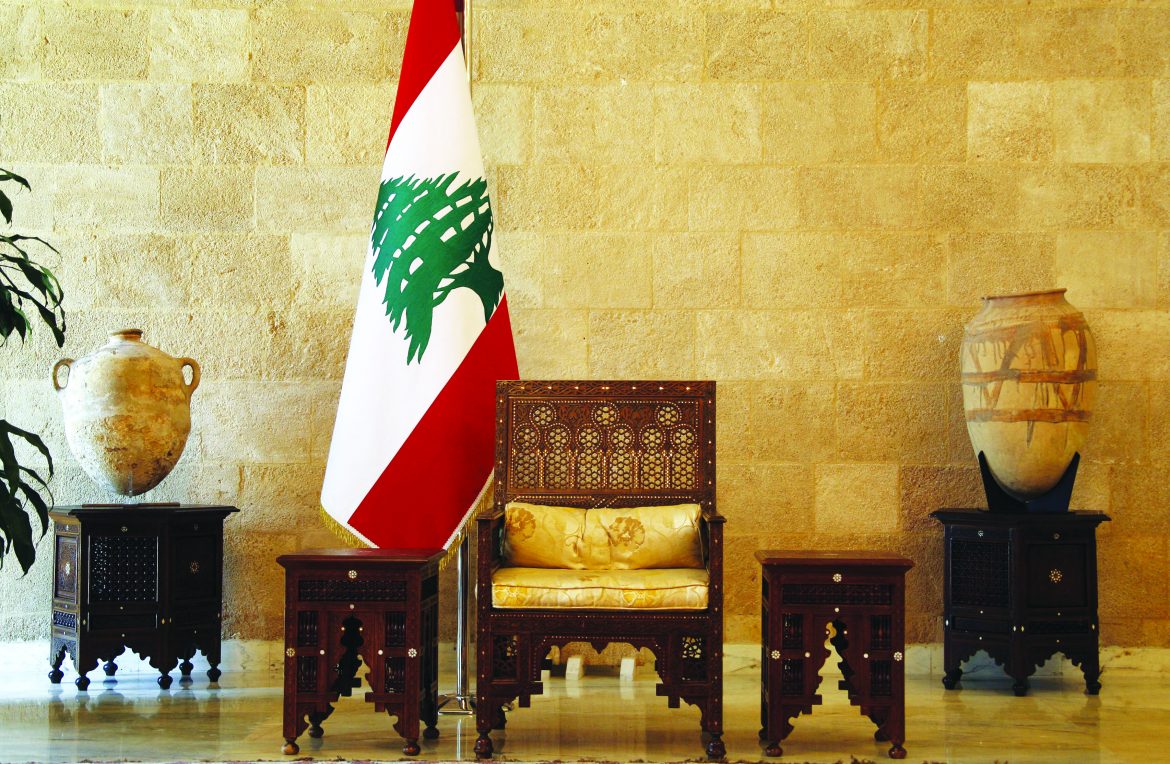The strategy challenge of 2023

The Lebanese presidential seat is seen in front of a national flag at the "Salle des Ambassadeurs" (Room of the ambassadors) at the presidential palace in Baabda on May 22, 2008. Lebanon's parliament speaker Nabih Berri has formally summoned lawmakers to elect army chief Michel Sleiman president on May 25, his office announced today. AFP PHOTO/PATRICK BAZ
